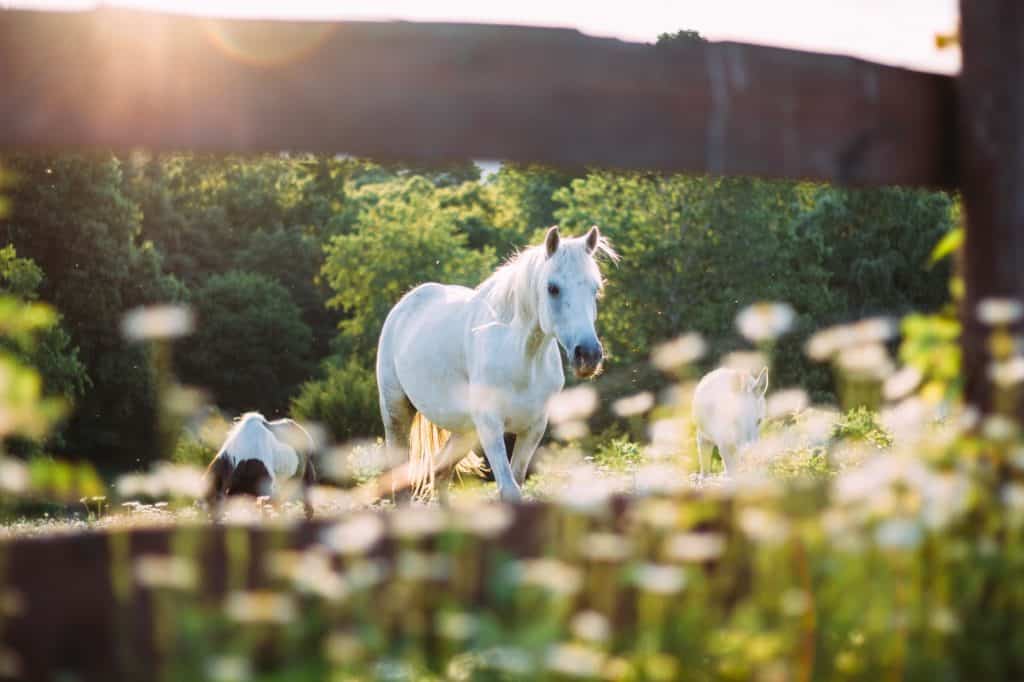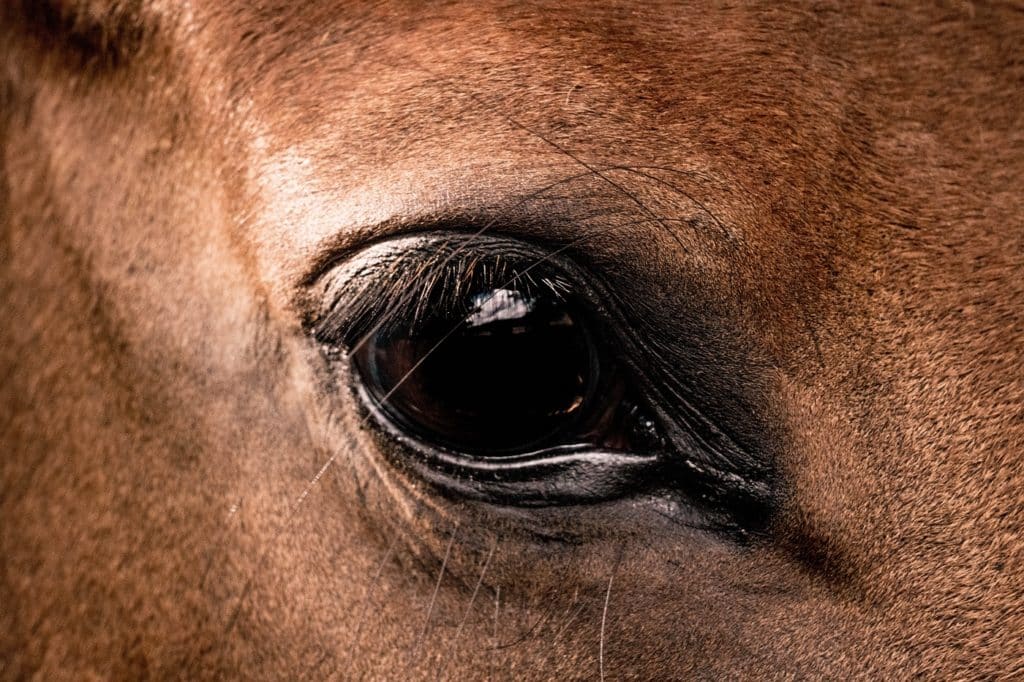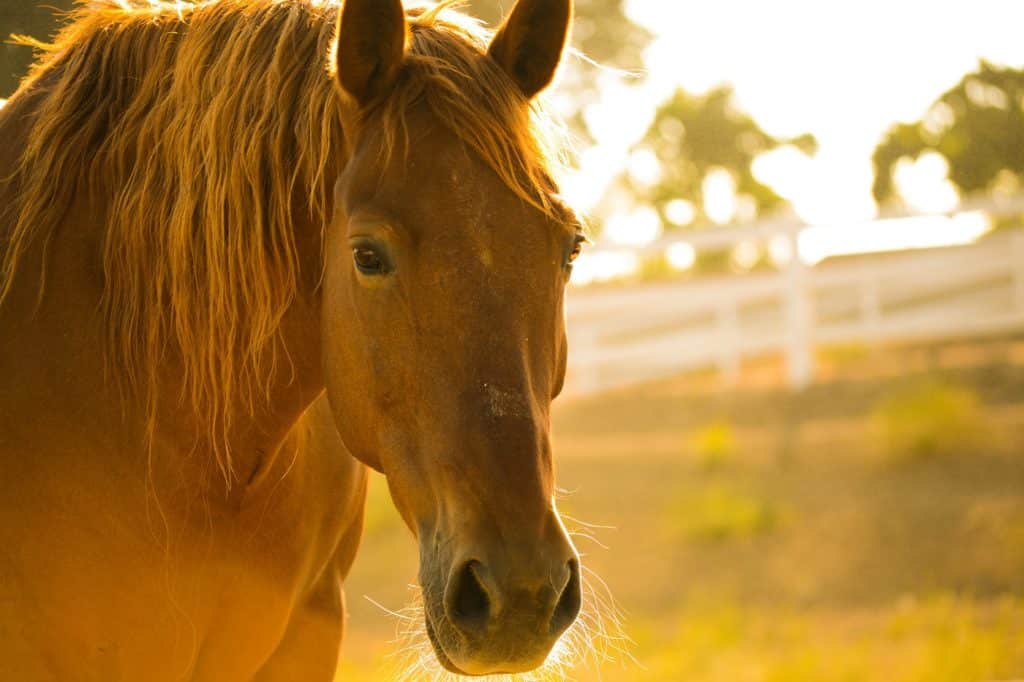Equine Health, Equine Lifestyle
How to keep your horse happy and healthy in summer
Summer is often a busy time for equestrians, with a jam packed events calendar, and longer days to enjoy riding. However along with the shows, competitions, hacks and sunshine comes the risk of summer health concerns like heat stroke, dehydration and insect irritation.
That doesn’t mean you can’t enjoy the season! There are plenty of ways to help keep your horse happy, healthy and comfortable in the summer months – meaning a more enjoyable time for both of you. Take a look at our tips on how to care for your horse in summer.
How to keep your horse healthy in Summer
1. Know the signs: watch out for heat stroke in horses
Heat and humidity can both have an affect on your horse’s health, in some cases causing heat exhaustion and heat stroke. If this occurs, fast action is required – and it pays to know what to look out for.
The symptoms of heat stroke can vary from horse to horse, but a few to watch out for include:
- Excessive sweating
- Changes in behaviour e.g. lethargy, irritability or panic
- Muscle spasms
- Loss of appetite
- Changes in breathing e.g. panting
- An elevated heart rate
- Changes in ridden performance
This list is by no means exhaustive, and if you are concerned that your horse may be suffering from heat stroke or exhaustion, call your vet immediately.

2. Keep your horse hydrated
Keeping your horse well hydrated during the summer months is key to ensuring they stay happy and healthy. In hot weather, your horse can drink up to 55 litres a day (for some, this number is even higher!), so it’s crucial to provide a constant supply of clean, fresh drinking water. In warmer weather, this will likely mean replacing their water more often than usual to avoid it going stagnant.
It is also a good idea to keep checking on their water buckets to make sure they have not become empty, or been knocked over.
Top tip: when travelling, bring water with you from home to encourage your horse to drink – they can be wary of unfamiliar water.
3. Replace the salts lost through sweat
Sweating is incredibly important for horses: it’s one of the main ways that they release heat and cool down. Our equine friends sweat at a much faster rate than humans, even when resting, and need to drink plenty of water as a result.
Horses also lose vital salts and electrolytes through sweat, and replacing these is important in order to maintain a healthy equilibrium in your horse’s body. Providing a salt lick is a good way to help your horse regain some of the salts excreted through sweat, while supplementing their diet with a good electrolyte for horses can also help them restore that all important balance.

4. Use sunscreen
Just like us humans, our horses also need protection from the sun’s rays. All horses are at risk of sunburn, particularly those with pink skin, so applying sun cream is a summertime must.
Wondering what sunscreen to use on your horse? The best sun cream for horses are those which provide long lasting UVA and UVB protection; and offer easy application. There are plenty of sun creams made specifically for horses on the market, while some horse owners prefer to use child-safe sunscreen. If in doubt, consult your vet for advice on the best sun cream to use on your horse.
5. Keep your horse cool
Longer days and the promise of more sunshine (even during the Great British summer!) mean more time spent outdoors with your horse, whether hacking, leisure riding or at competition.
However as the mercury rises, make sure to keep your horse cool to avoid equine heat stroke or exhaustion. Avoid the hotter parts of the day for both riding and travelling wherever possible; follow a good cooling down process after work or exercise; and ensure constant access to shade and cooler areas for your horse during the day.
You may also want to consider clipping your horse if they have a thicker coat.

6. Protect your horse from flies and insects
Flies such as horse flies, midges and stable flies can wreak havoc in the summer months, and while some horses may not be too bothered by these warm weather pests, others can have a strong reaction – which shows itself in a number of ways, including behavioural changes and physical symptoms like irritated skin and Sweet Itch.
Prevention is always better than cure, so avoiding flies wherever possible is a good first step. Keeping your horse in during the day and turnout at night; keeping drinking water clean and fresh (flies love stagnant water); installing fans and fly traps in stables; using good quality fly repellent sprays and barrier creams; and using anti-fly turnout rugs are all good ways to help reduce the irritation of flies in summer.
If your horse is showing irritation from fly bites, make sure to keep the area clean; use antiseptic treatments and soothing ointments; and seek veterinary advice if you are concerned. Adding a natural supplement like chondroitin for horses to their diet can also help to provide natural relief from the irritation of sweet itch.


